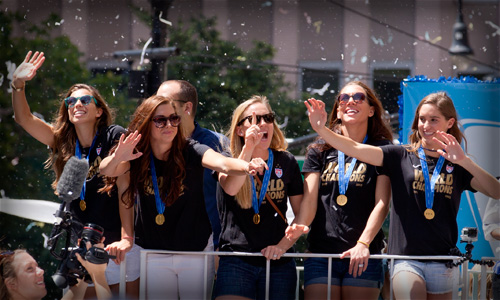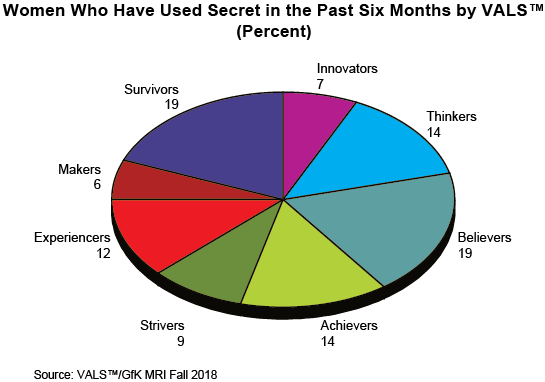USWNT: More Than a Great Win August 2019

Lyon, France: 8 July 2019
"There will be a before and after the Women's World Cup 2019," says The Fédération Internationale de Football Association (FIFA) president, Gianni Infantino. FIFA doubled the prize money for the 2019 event from $15 million to $30 million. The Huffington Post notes that at the same time, prize money for the men's event increased from $400 million to $440 million. Although FIFA plans to double prize money for the women's tournament again to $60 million in 2023, doing so will achieve little in the way of pay equity.
The 2019 tournament is the second consecutive World Cup win for the US women's soccer team: 2 – 0 over the Netherlands, both wins captained by Megan Rapinoe. By comparison, the men's team has never won the World Cup—at best placing third in 1930. "Unequaled in play and unequal in pay" reports Lindsay Crouse of the New York Times. No wonder "Equal pay!" was the chant that filled the stadium in Lyon and followed the team during its celebratory parade on New York City's streets.
In March 2019, Rapinoe and 28 US Women's National Team (USWNT) members filed an equal-pay lawsuit against US Soccer. Early in July, Senator Joe Manchin III, Democrat from West Virginia, introduced a bill, the essence of which is "Equal Pay!" To encourage an act of Congress, the team's next stop is Washington, DC—not to be hosted by the president, but to have substantive conversations with top Democrats.
Through its Secret brand of deodorants and antiperspirants, Procter & Gamble (P&G) is donating $529,000—$23,000 per player—to help close the gender gap. P&G has been finely tuned to women's issues since 1956, when it introduced Secret, the first women's deodorant, into the marketplace. Support of the USWNT makes perfect marketing sense, although how P&G arrived at the figure of $23,000 per player would be interesting to know. The campaign's tag line is, "Women just made history. But they have always deserved equal pay."

Roughly 120 million women (94%) use deodorants or antiperspirants, according to VALS™/GfK MRI's Fall 2018 study. In the past six months, the majority (62%) have used a scented deodorant; only 20% have used an unscented product. Thirty-four percent of women (43.4 million) who use a deodorant or antiperspirant have used a Secret product in the past six months. First P&G sold Secret as a cream. It introduced a roll-on product in 1958 and a spray in 1964. Solid-stick Secret is a more recent formulation (1978) and is the type most frequently in use: 13% of women—or 16.2 million women—do so.
Of women who have used Secret in the past six months, nearly 40% are women with more traditional beliefs and lifestyles who are less likely to watch women's soccer or to advocate fiercely for women's rights on the internet (Survivors and Believers). Believers, however, are frequent consumers of news through magazines, gossip, and talk shows and may tacitly applaud Secret's campaign among friends, neighbors, and coworkers. P&G is joining the multitudes of firms that are using social-cause or advocacy marketing to remain in conversation on social media, seeking approval most likely from Innovators, Experiencers, and Achievers with the campaign, even though consumers less active on social media are ultimately the core customers of the brand. Importantly, the campaign is unlikely to alienate many consumers or cause a backlash, as happened with P&G's Gillette short film "The Best Men Can Get," which registered 1.5 million downvotes on Youtube earlier in 2019, in comparison with roughly 800,000 upvotes.
To learn more about the VALS types and the most appropriate VALS target for your business, contact us.
Visit the Why-ology Library and VALS homepage for more articles. Now featured: